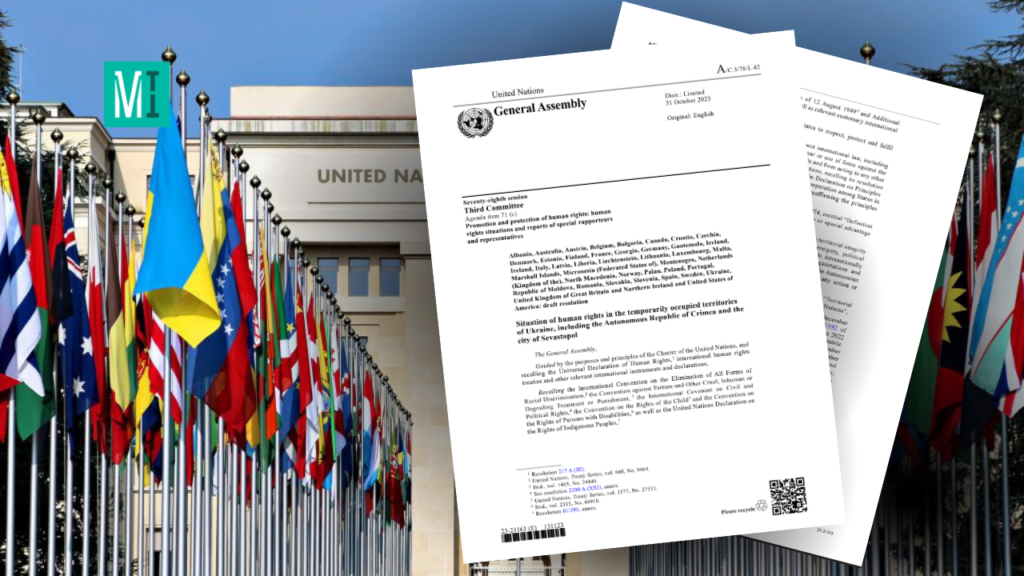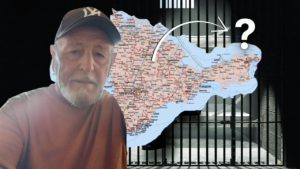For the first time, the UN illegally has recorded the problem of Ukrainian civilian hostages held by Russia: what will it do?

On 19 December, 2023, the UN General Assembly adopted an updated resolution on the situation of human rights in the temporarily occupied territories of Ukraine, including the Autonomous Republic of Crimea and Sevastopol. 78 countries voted in favor, 15 against, and 79 abstained. For the first time, the new document mentions Russia’s arbitrary detention and holding of civilian hostages, which is strictly prohibited by international law.
Its key difference from previous resolutions is that the document for the first time refers to Russia’s arbitrary detention and holding of civilian hostages, which is strictly prohibited by international law. Previously, the UN had not mentioned civilian hostages in the context of Russia’s armed aggression against Ukraine. The draft resolution also mentions for the first time the name of Mariano García Calatayud, a volunteer and Spanish citizen who was reported by the MIHR. In the spring of 2022, the Russian military abducted the man in Kherson and subsequently took him to occupied Crimea.
The adoption of the new version of the resolution will expand opportunities for advocating for the release of civilian hostages and engaging third states in negotiations at the UN level. Throughout the year, MIHR has been actively promoting this topic on various international platforms. With the support of the “Ukraine 5AM” Coalition, we have developed possible mechanisms for the release of civilian hostages, including many potential international instruments.
We would also like to draw attention to the fact that the text of the resolution, despite numerous discussions among human rights defenders, uses the term “civilian hostages” in the context of arbitrary detention and detention of Ukrainians by Russia. The justification for why this is not contrary to International Humanitarian Law and why it is appropriate to use this term was provided by the MIHR in the potential mechanisms for the release of civilian hostages. One of our arguments is that the detainees are forced to praise the President of the Russian Federation and his policies, often offered to take Russian citizenship and to defect to Russia in exchange for their freedom. All of this indicates that there are reasonable grounds to believe that they are being held for political reasons, and therefore fall within the definition of hostages.
It is worth reminding that under international law, the occupying power, in our case Russia, is obliged to ensure human rights in the occupied territories.
Read the draft resolution here:






